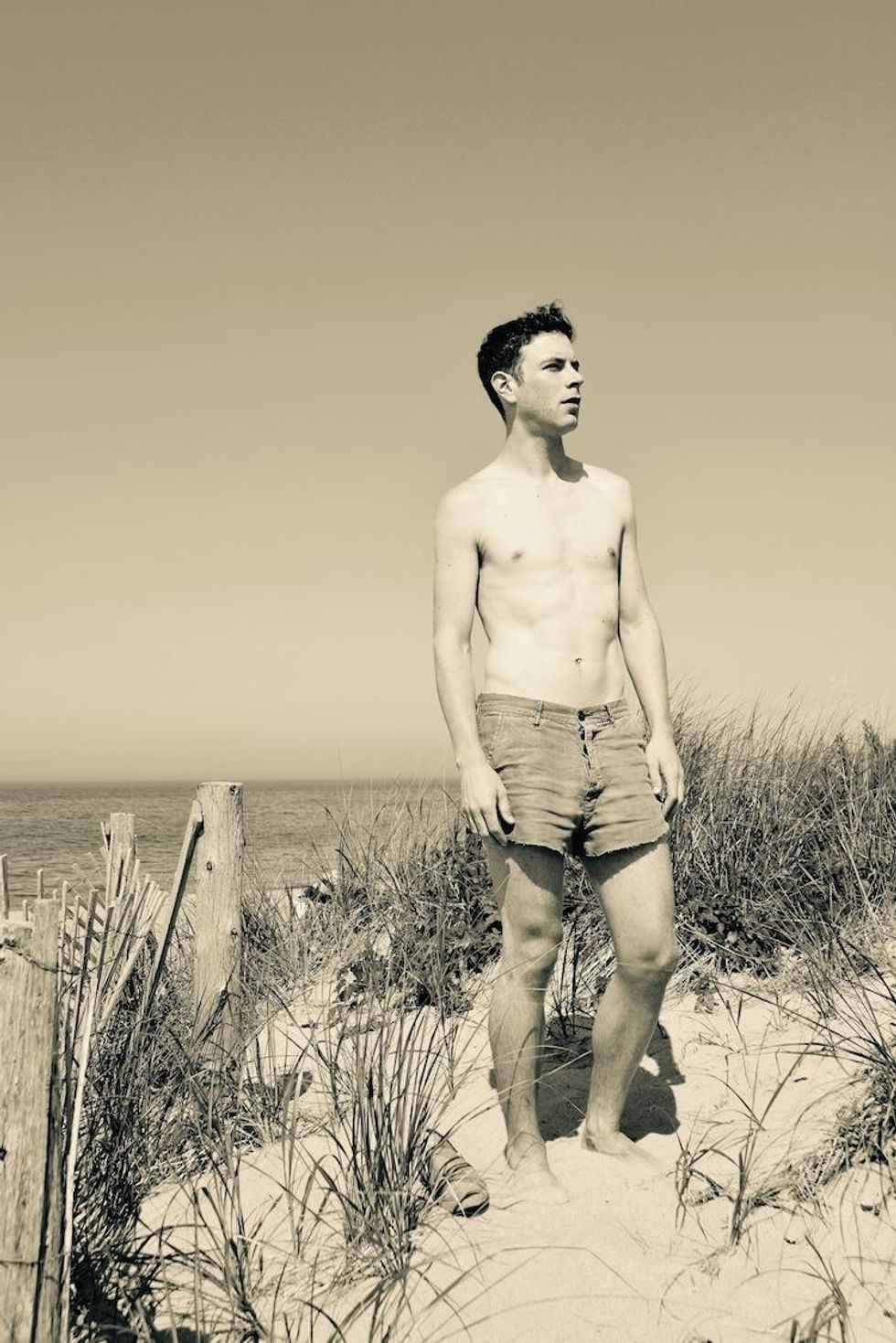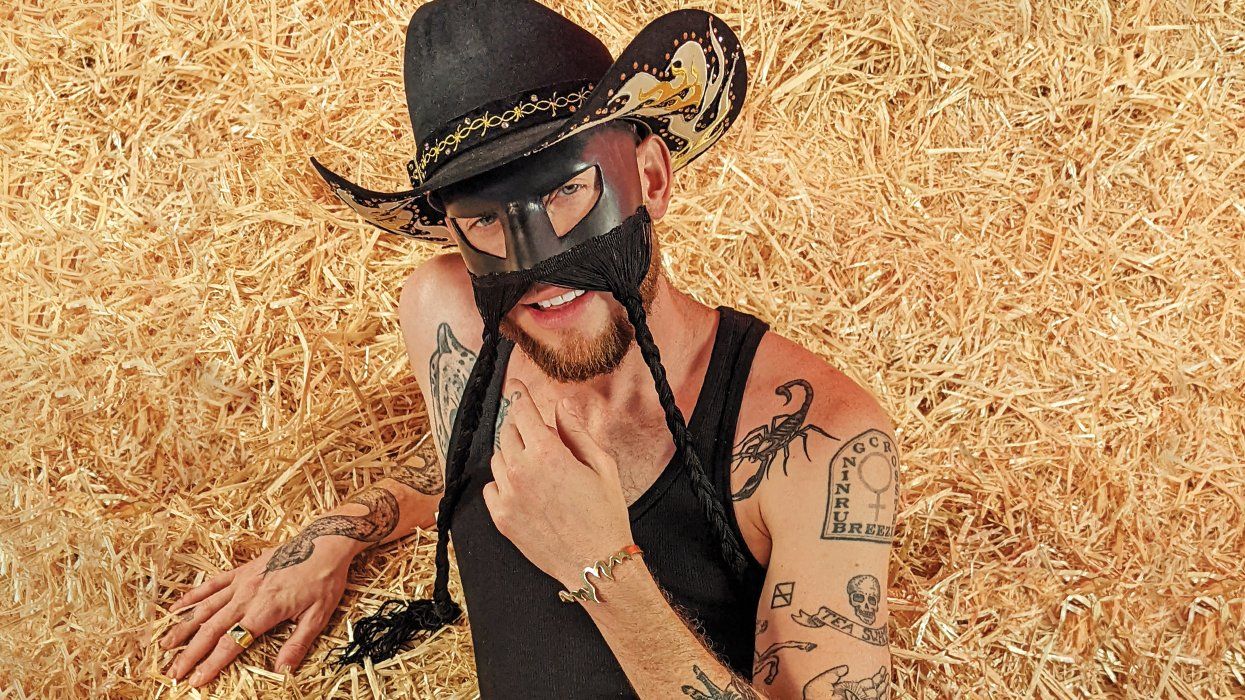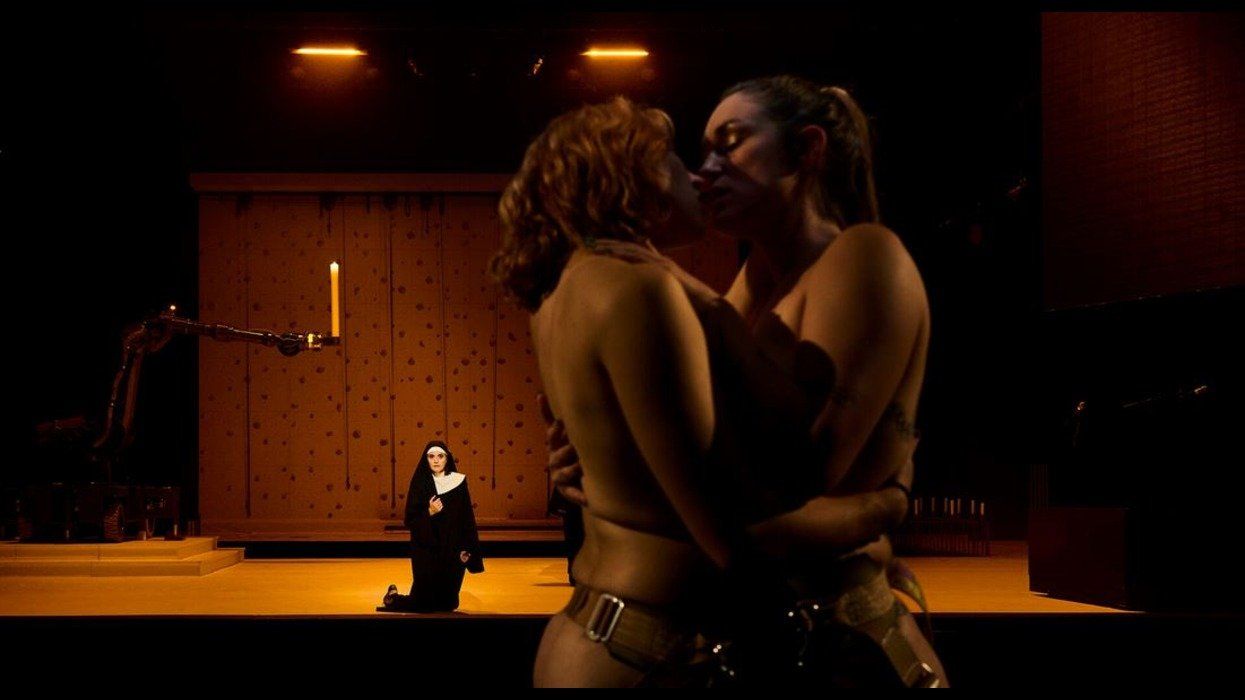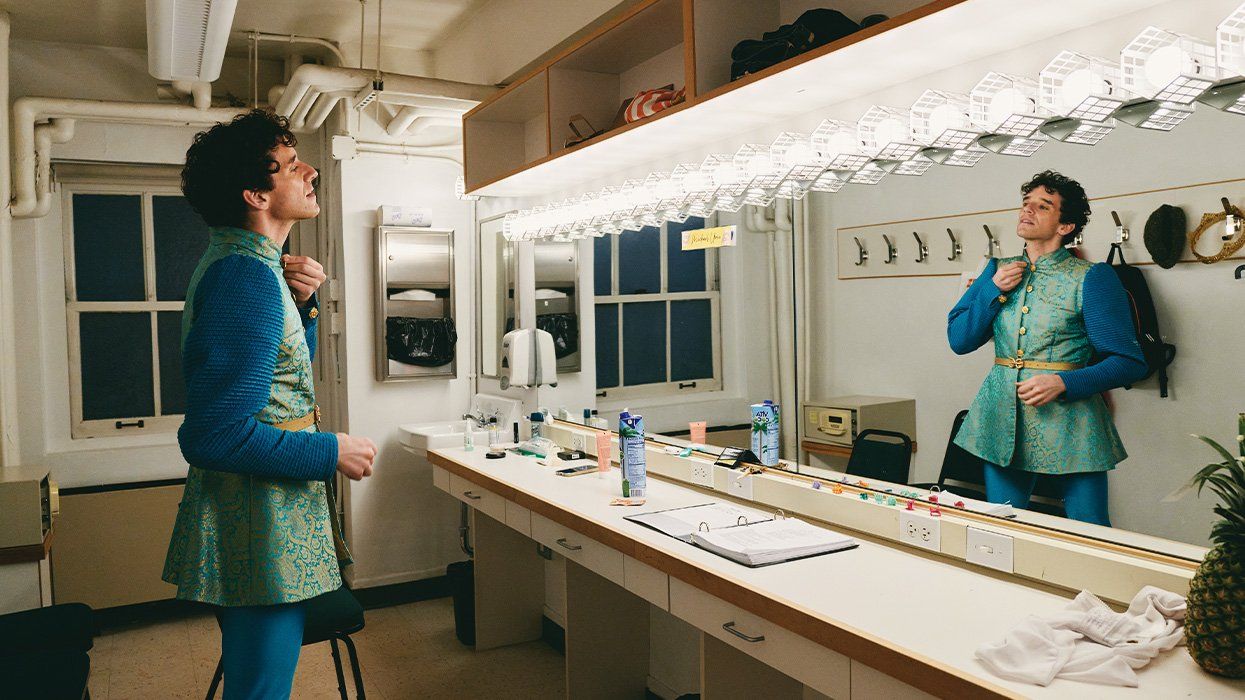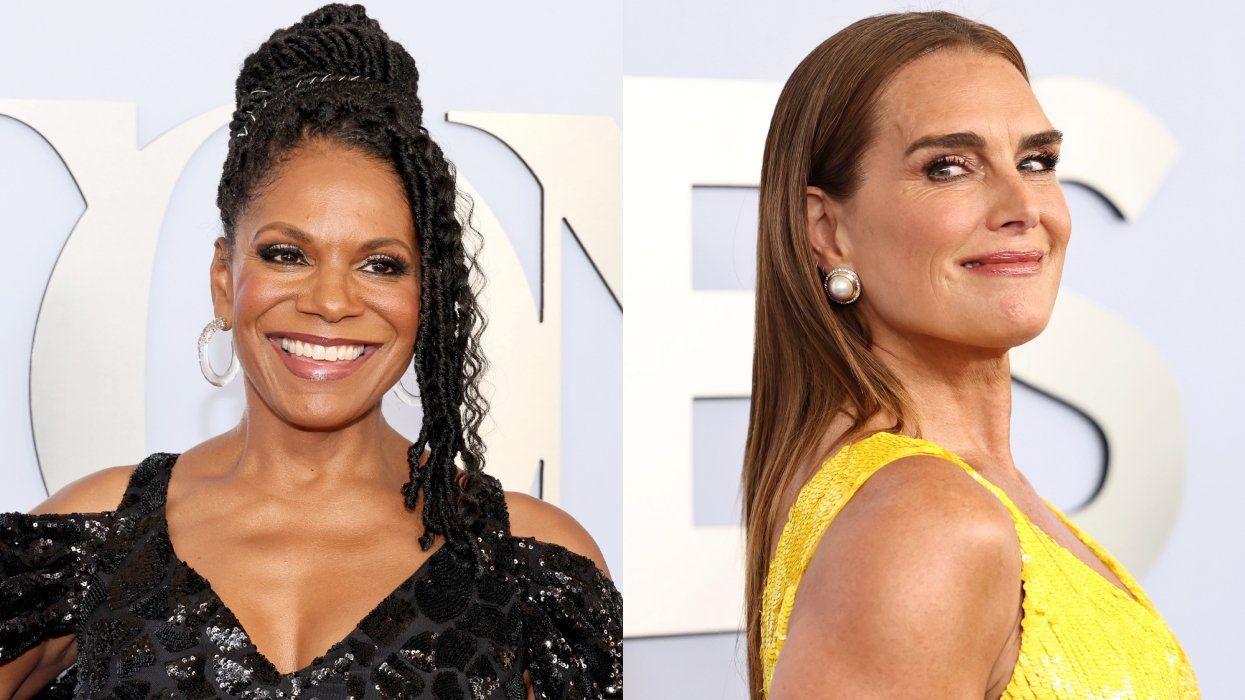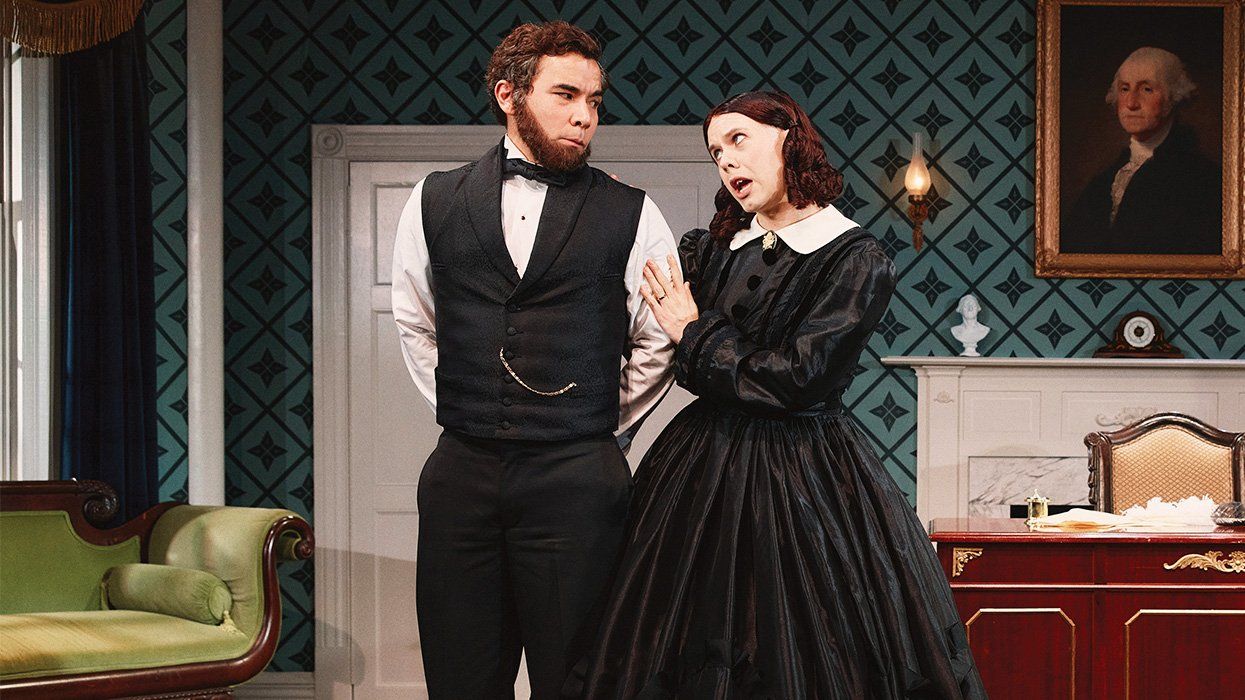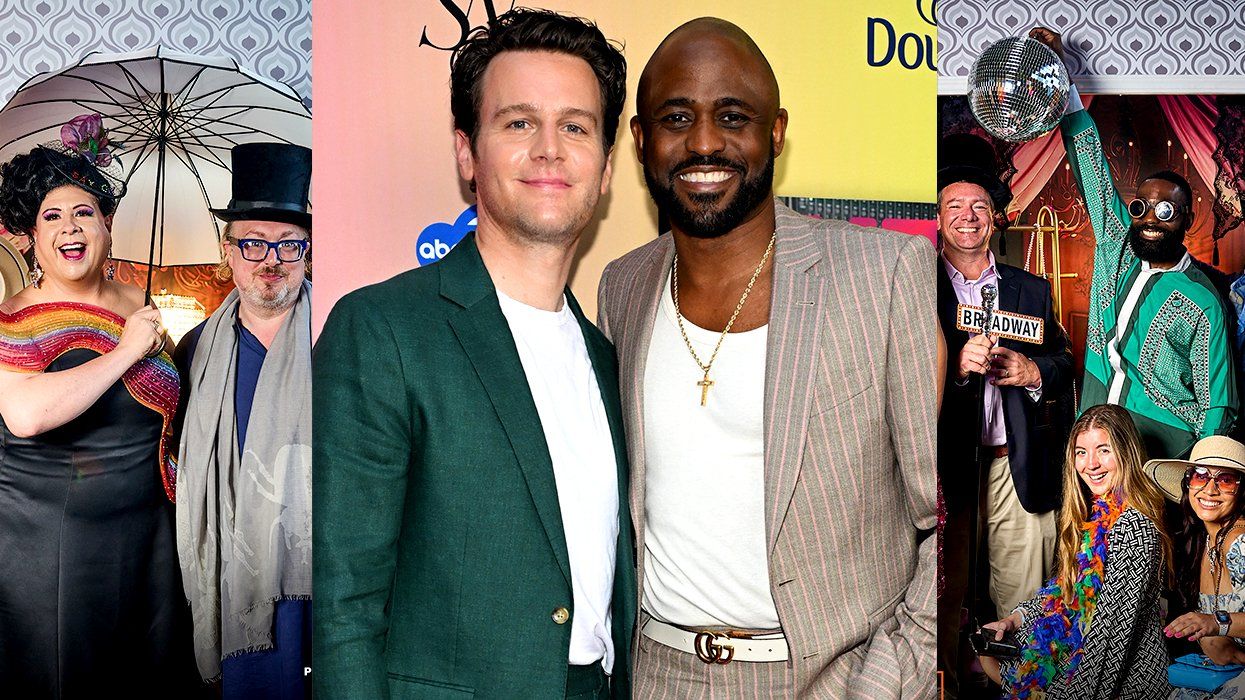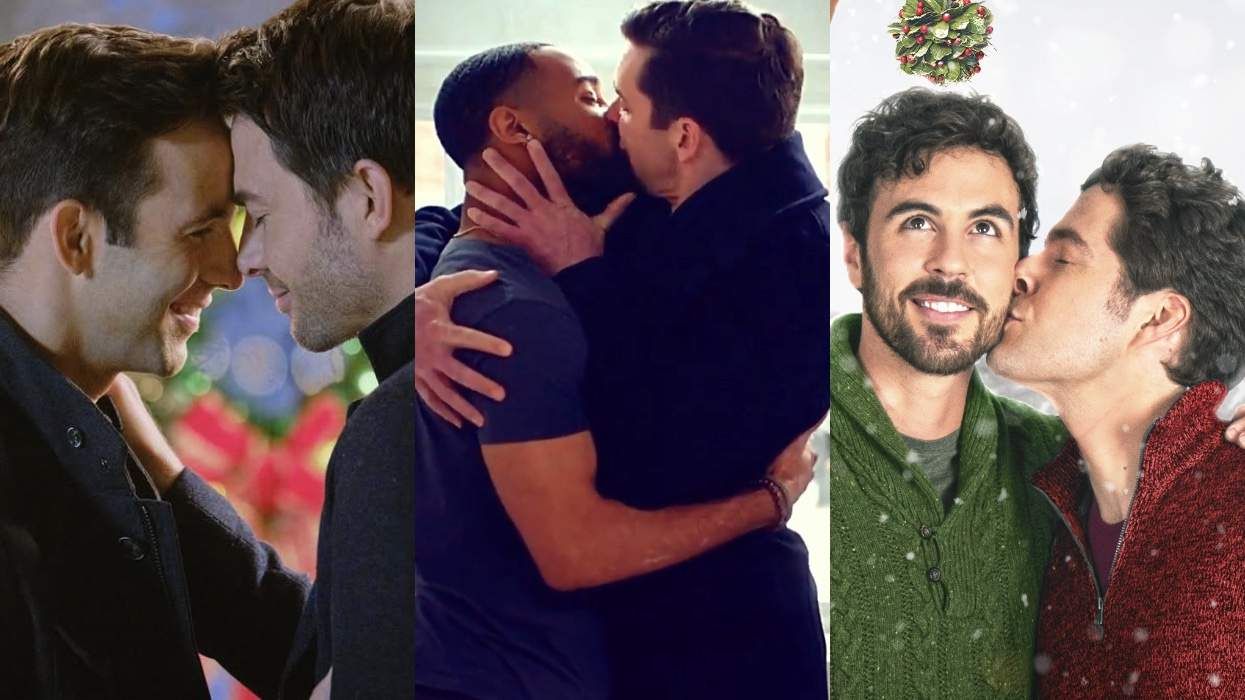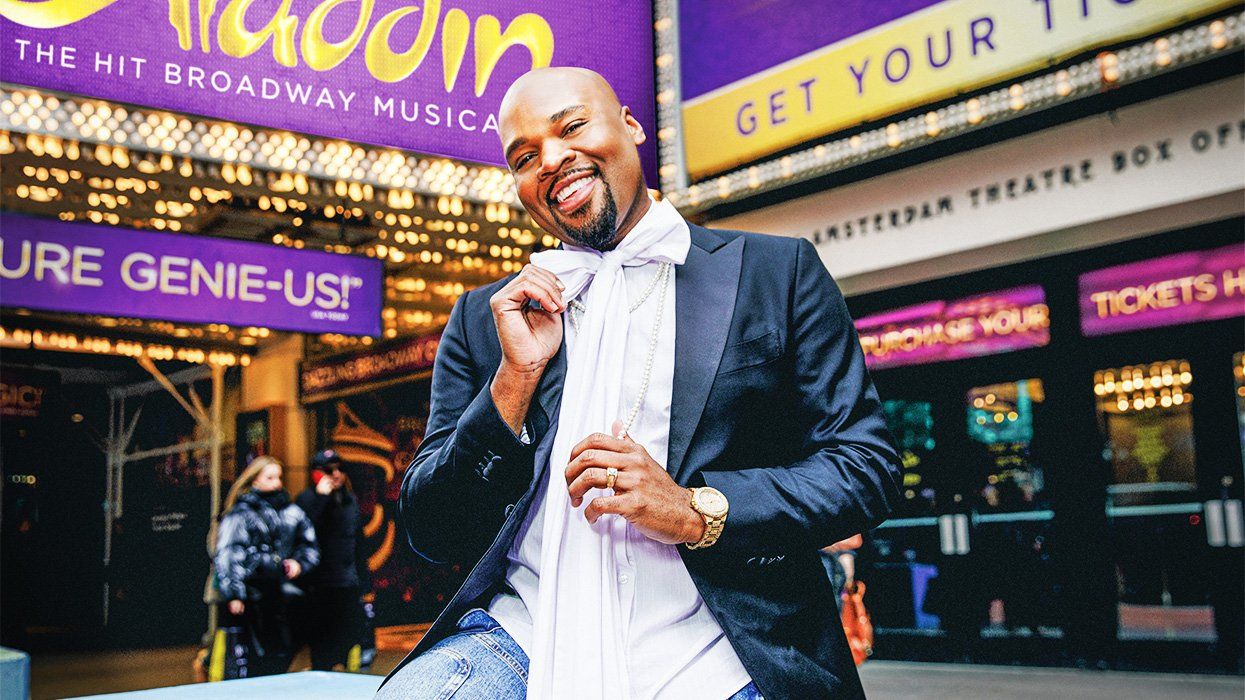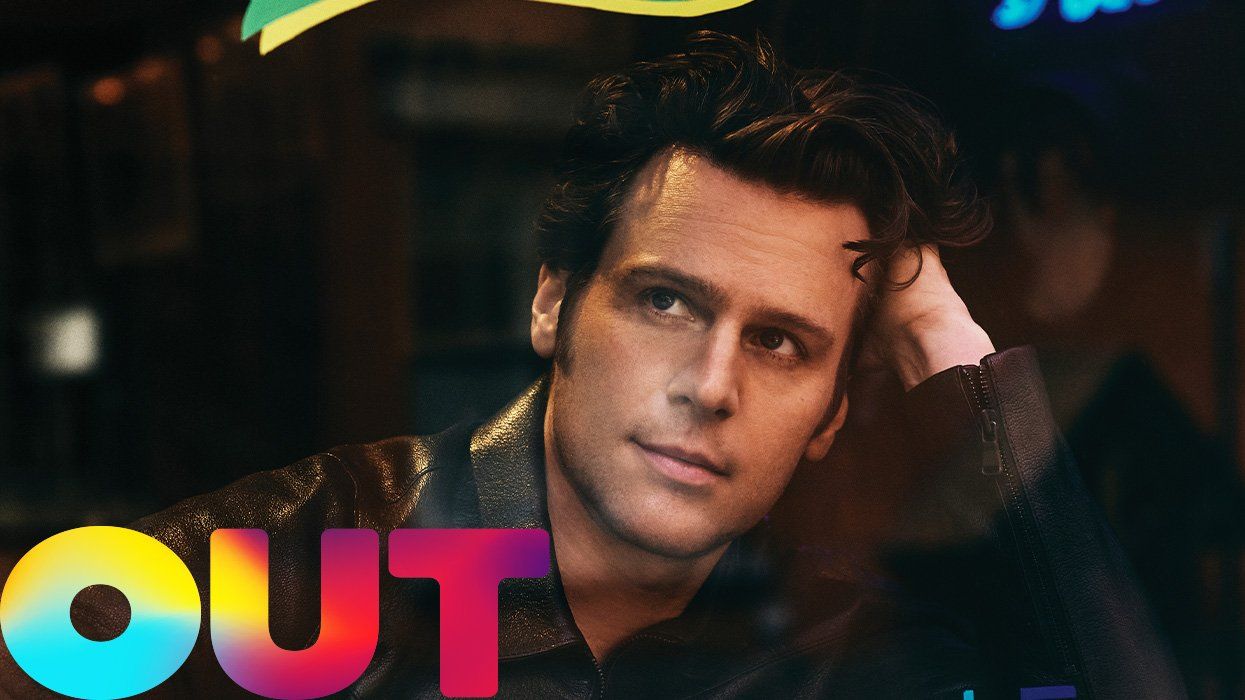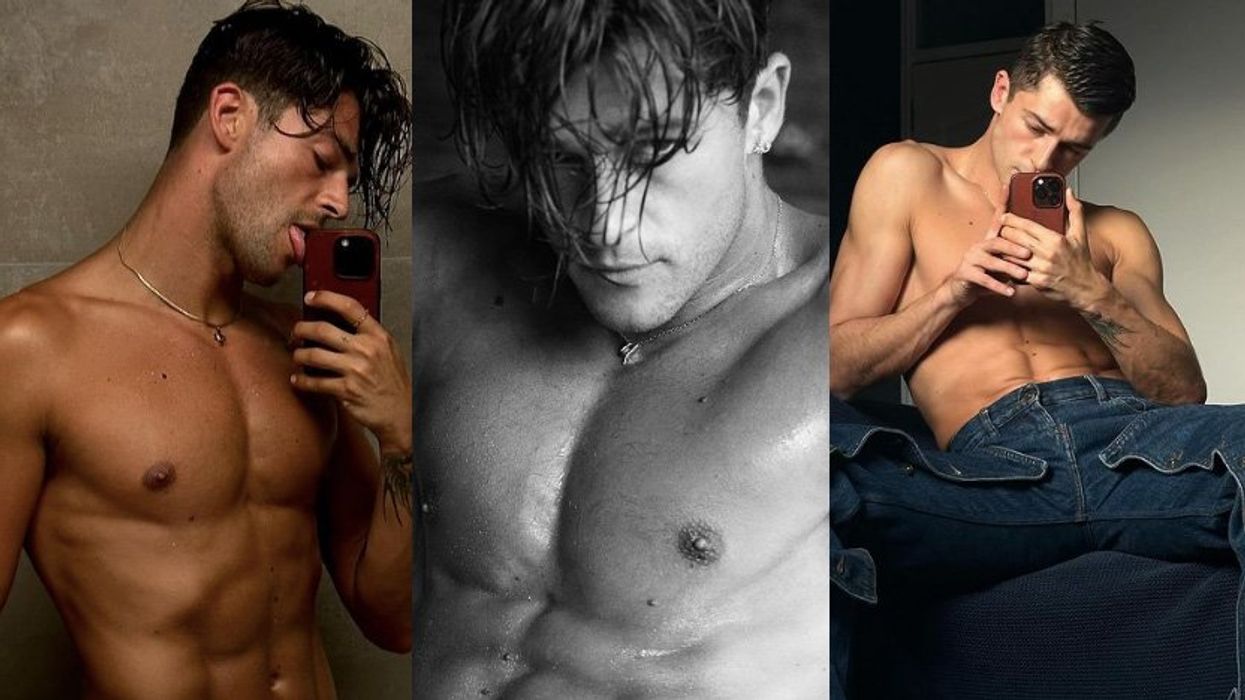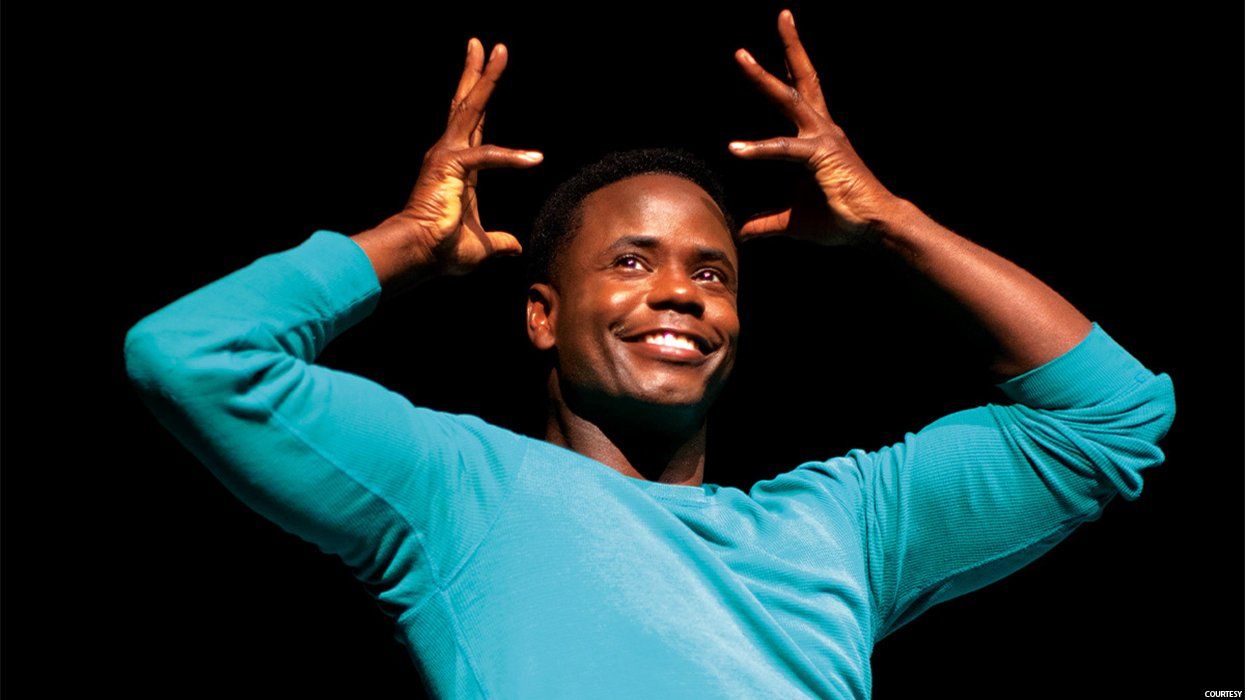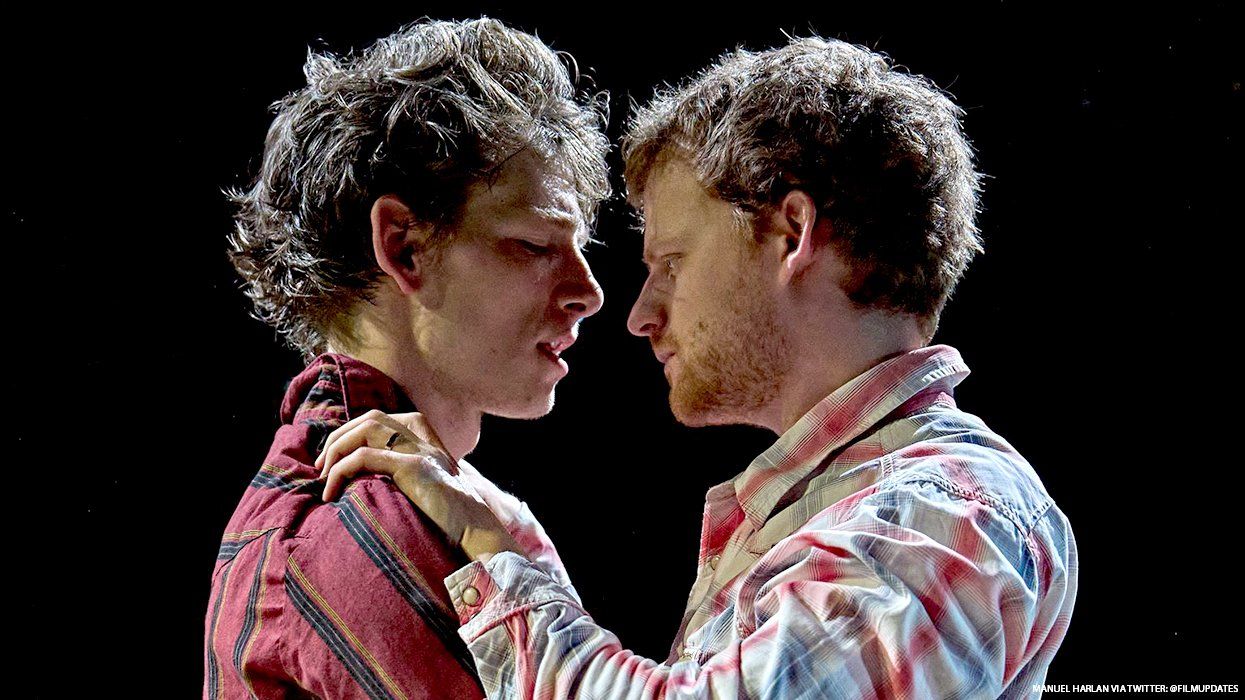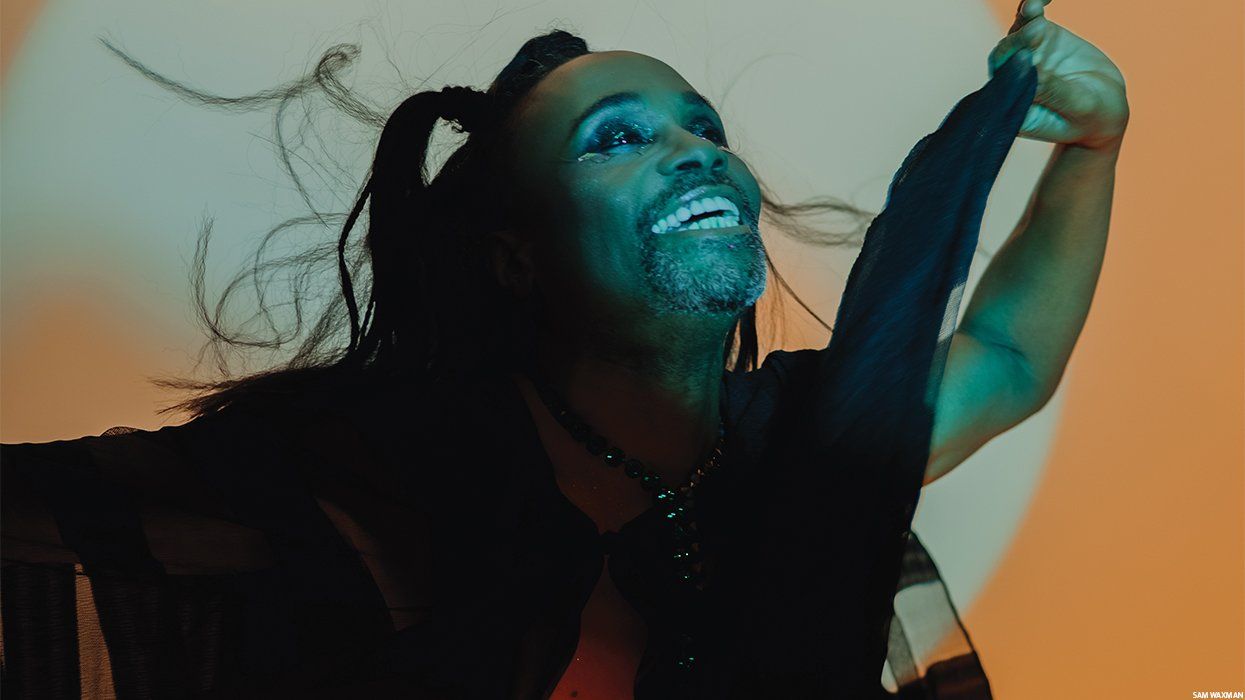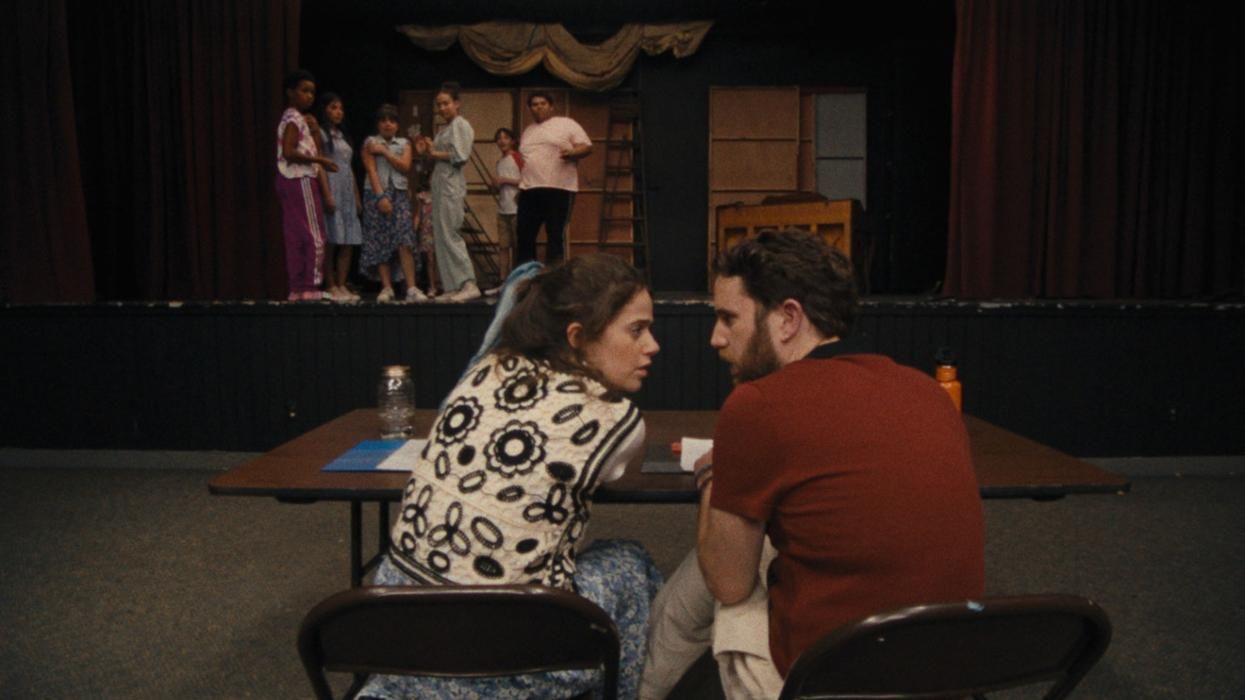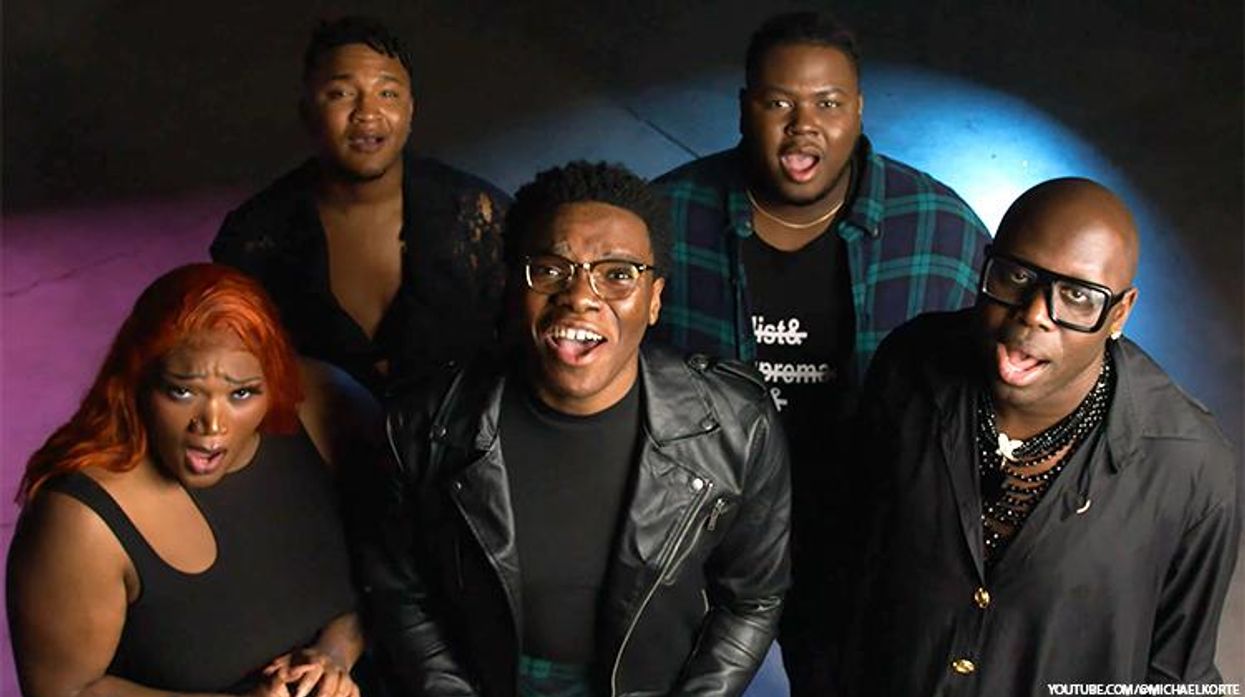Pictured: Tennessee Williams in 1944, standing in Ptown | Photo by Harold Norse
Queer audiences have always celebrated Tennessee Williams, one of the celestial figures of American drama, and this year the annual Provincetown Tennessee Williams Theater Festival is sure to get hearts racing both on and off the sand. For Year Tenn: A Decade of Tennessee Williams In Provincetown, the festival includes a staged reading of More Stars Than There Are In Heaven by John Guare (Six Degrees of Separation and House of Blue Leaves) that stars Randy Harrison (Queer as Folk) and a revival of the heartbreaking play The Parade directed by Jef Hall-Flavin, the dramatic thriller Suddenly Last Summer.
"I think of Williams and his characters as the consummate outsiders," says Randy Harrison, who stars as a young Williams in the world premiere staged reading of Guare's More Stars Than There Are In Heaven. "He's attracted to these outsider characters--to these bizarre, macabre characters who are on the periphery of society--and he treats them with a glamour, a respect, and with a profound empathy. I feel like that's such an innately queer thing."
Hall-Flavin, the festival's executive director who is also directing The Parade, is, naturally, a fervent Williams fan. "I think Williams' plays always pack a punch of the universal truth," adding of Williams' queer appeal: "I feel it's really important to note that he was writing gay characters as early as 1940... Tennessee Williams knew who he was. He didn't hide behind his female characters. He didn't hide behind the pen. He lived as out as he could've given his lifespan and what was going on in the world at the time. I think he was quite in touch with what it meant to be gay."
Offering both a comedic and intimate look into the early stages of Williams' career, Guare's More Stars Than There Are In Heaven is an adaptation of Tennessee Williams' short story "The Mattress by the Tomato Patch." The fictional tale was based on Williams' experiences as a young, struggling writer employed by MGM and his interactions with his Marxist landlady. "I think an examination of our great artists is always significant," Harrison says, noting the importance of this new play. "I just love hearing about how an artist developed, especially such a specific artist and a queer artist like Williams. He's just very funny, smart, romantic, and a lot of the text is his own. It's from the short story, so it's wonderfully poetic and wry."
The language Williams crafted for his characters is why scholars refer to him as the "American Shakespeare." "That's what brings me back to Williams time and time again," Hall-Flavin adds. "The language is always so amazing. He's a poet, and he's a poet of the American theater."
Yet it is the characer of Zola, the landlady, in Guare's play that audiences will probably find the most fascinating. "She is sort of this meeting of Princess [in Sweet Bird of Youth] and Maggie [from Cat on a Hot Tin Roof] and Blanche DuBois and Serafina [from The Rose Tattoo] -- all of those women sort of combined in this amazing, dynamic between Williams and these kinds of women he was attracted to," Harrison says. "None of these women, of all of Tennessee William's main female characters, would have been created by anybody besides him. No straight man would have cared about this crazy Russian immigrant, sexually voracious woman in 1941 running a boarding house."
Guare, applying his own lens to Williams' life and characters, highlights how radical and inspirational this woman and character is for Williams. "She might have been a small character that was a caricature in the background of some straight man's play," Harrison explains. "But, for Williams, this is what he was obsessed with; what he loved because it was, in a way, his mother and sister, and it's the way he saw himself too."
Ben Berry is in 'The Parade' | Photo by Eileen Counihan
The Parade, one of Williams' lesser-known pieces, is an extremely autobiographical play in which Williams' chronicles his being dumped for a woman by the first great male love of his life one summer in Provincetown. For the revival, Ben Berry is returning to the role of Don, but Hall-Flavin has a few surprises in store for audiences. "It originally premiered in a theatre space, and we're taking it out of the theatre and performing it outdoors with the natural landscape as our set," he says. "That's going to be a lot of fun, I think, for audiences."
Even though the play boldly utilizes gay characters, it is a show that everyone can relate to. "I think everyone can understand what it's like to be hopelessly in love with someone who can't return your feelings," Hall-Flavin explains. Unrequited love abounds in the play as 29-year-old writer Don hopelessly pines for Dick, a young dancer. Dick is in love with Wanda, and then Miriam, Don's confidant, pursues a romantic connection with Don. "You can certainly identify with the protagonist Don, but also, he's got a friend named Miriam, who is in love with him, and he can't return her feelings," Hall-Flavin says. "So, it's kind of a love triangle that I think anyone can find themselves a part of."
The Parade perfectly connects Williams to Provincetown and the theater festival, with Hall-Flavin explaining it was a "landmark idea" when it first premiered in 2006. "I think it colors and changes our idea of who Tennessee Williams was," he says. And since there are 10 shows to be seen -- and one can see all 10 in a single weekend -- this annual event has become a must for any theater fan who thinks they know the American theater master.
Provincetown Tennessee Williams Theater Festival takes place Sept. 24-27. Visit the website for more information and tickets.



